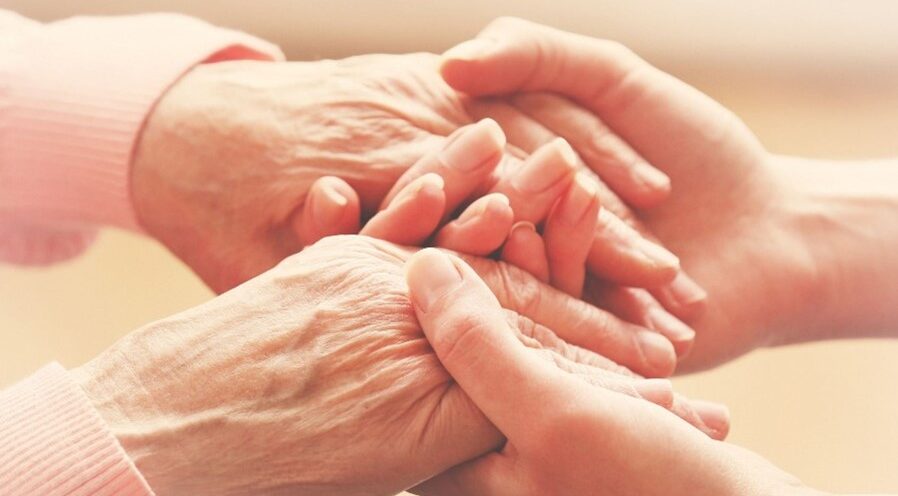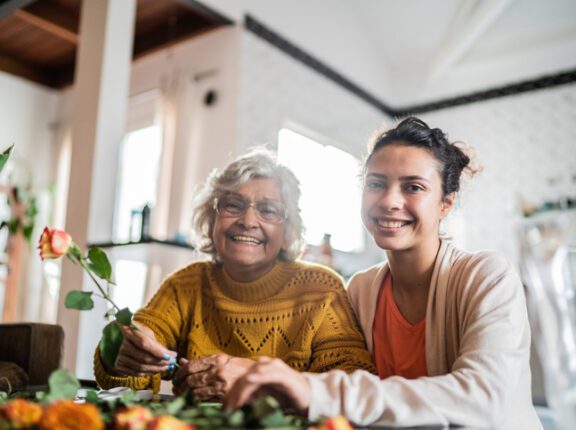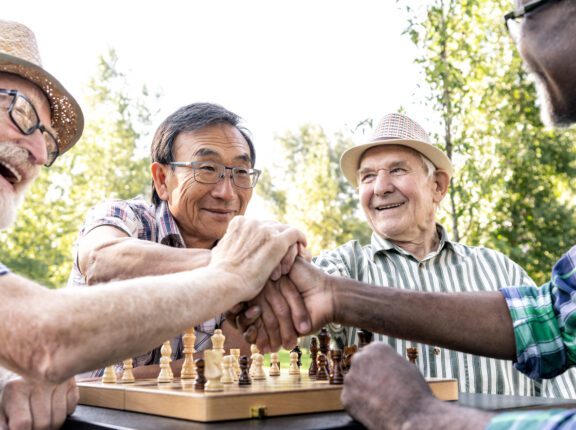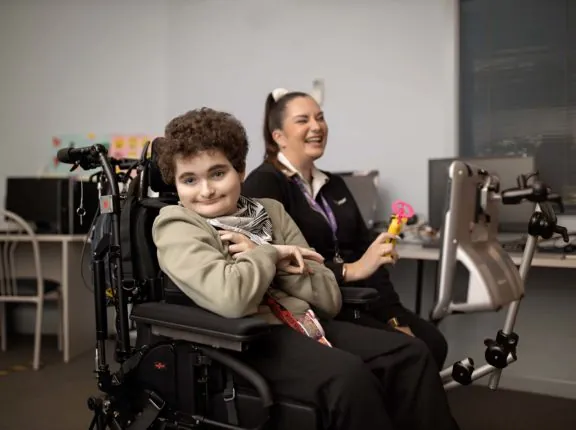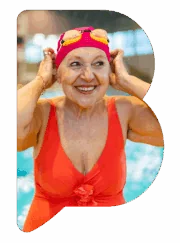Content warning: this article discusses suicidal feelings.
Research has shown that loneliness can have a very real effect on both our physical and our mental health, and sadly, as we age, and our routines and lifestyle change, we can find ourselves becoming increasingly lonely and isolated.
In an attempt to combat the loneliness epidemic that seems so prevalent in today’s society, LiveBetter has partnered with Inclusee and All Hallows’ School, Brisbane, to trial a program which brings our older and younger generations together. The program, which commenced in May, digitally connects LiveBetter Aging customers with All Hallows’ year six students. Each week, the older and younger participants have shared their stories and experiences, and over time, they have begun to develop a real connection.
We recently caught up with two of the program’s participants, Betty Humphreys, a mother, and grandmother who lives in the picturesque Central West town of Orange, and Ruby Cook, a year six student who lives in the Queensland capital of Brisbane.
From the moment she first heard about In2Generations, Betty could see the value of sharing her story and hearing the stories of others. She knew wanted to be involved.
“I think it’s a great thing to have the younger generation realise that their life is so different to older generations. It’s good that we can talk about these differences together.”
Ruby, who is in Grade Six at All Hallows’, heard about In2Generations through her school when Inclusee visited the school to talk about the program.
“At the presentation, they showed a video of an older person saying that they were having suicidal thoughts and that they felt really lonely and just didn’t really want to go on. I thought that maybe I could help people who felt this way.”
Each week since the program commenced, Betty, and the other LiveBetter participants, connect with Ruby and her classmates from the comfort of their living rooms. Although initially a little sceptical about how this digital approach to community connection would work, Betty says she now looks forward to the weekly sessions.
“There’s been a lot of thought put into it. I’m grateful that LiveBetter decided to be a part of it because there are a lot of people here who are lonely,” said Betty. “I have friends who don’t have their children around, and they get very lonely. They just watch TV. They’re not mobile and although they do have services visit, it’s not the same.”
And Ruby, who normally stays busy learning gymnastics, practising the piano, and enjoying her arts and crafts, has set herself a new goal.
“I hope to make at least one person feel less isolated and lonely by talking with them every Tuesday.”
Ruby also hopes to make new friends – friends who are of a different age and who grew up in a different time and place.
When asked how she feels the program is going she says, “I think it has been going well so far, although the way it works was a little surprising to me at first. I thought we would each get assigned one person, but we all chat together as a group.”
If there is one thing that has surprised Betty, it’s the number of extracurricular activities these young girls participate in.
“I don’t know how they fit it in. I think this program is making me realise that kids aren’t always sitting on their phones. These kids are showing me that.”
Betty believes this highlights a difference between her 20th-century rural upbringing and the upbringing of city kids in the twenty-first century.
“I went to a very small school, and there were no activities outside of school. You played with your friends after school – but we had fun!”
For a program that aims to reduce social isolation and loneliness and foster compassion and learning between generations, In2Generations seems to be hitting the mark.
Summing up her experiences so far, Ruby says, “I’ve learned that helping people is important in our world. I’m glad that I joined this program because I feel like I’m making a difference to the people in the group. I’m also learning new things – useful tips about growing up and how to live a successful and happy life.”
Betty would love to see the pilot extended, and for the program to be more widely available.
“Just having those young kids talk to us makes us feel special. We’re giving them an understanding of the tough times we had, and we’re getting to understand that there’s a lot more pressure on them these days than what we experienced – because there are so many more demands and expectations placed on them.”
Betty is also excited to be learning more about using technology, although she would also like to share the older generation’s technology too.
“It’s great because we’re using technology – and the students see us using the technology. But it would be good if we could also write letters – use some of my generation’s technology as well.”
Since catching up with Betty and Ruby, it has been announced that In2Generations will be extended for a further ten weeks. This leaves us with little doubt that programs like In2Generations not only address loneliness and isolation in older Australians but can help to build a bridge that spans both the generational and the digital divide.
In the words of Betty Humphries, “I think for any older person who hasn’t got people around them, this program is just fantastic. They look forward to doing it every week. You can hear the excitement in their voices as they chat with the year six students. You can feel that excitement, their engagement – it’s just a great program!”
You can learn more about Inclusee and the work they do by visiting their website https://inclusee.org.au/
Support is available from Beyond Blue on 1300 22 4636 or Lifeline on 13 11 14.
